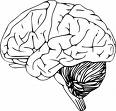Connecting neuroscience and reading

Tools and ideas to transform education. Sign up below.
You are now subscribed
Your newsletter sign-up was successful
Neuroscience research has shown that the only real way to change the trajectory of a child’s academic career is to change the rate and accuracy with which the brain receives and uses information. Research conducted by Drs. Michael Merzenich and Bill Jenkins while at the University of California, and Drs. Paula Tallal and Steven Miller at Rutgers University Technology (the founders of Scientific Learning Corp., makers of Fast ForWord) established several key findings that became the basis of a technology-based program that today is used in thousands of schools across the country:
· The core cognitive and linguistic attributes that allow a student to
learn can be improved through intensive intervention that can only be delivered through technology-based means.
· Acoustically modified speech technology can help build a wide range of
critical language and reading skills.
- Computers can be used to create interactive, adaptive learning interventions based on a neuroscience foundation that yield years of growth in as little as a few weeks.
Today, the Fast ForWord software developed by Merzenich and company is being used to address everything from English language acquisition to helping adolescent and at-risk learners regain years of reading achievement.
Tools and ideas to transform education. Sign up below.
